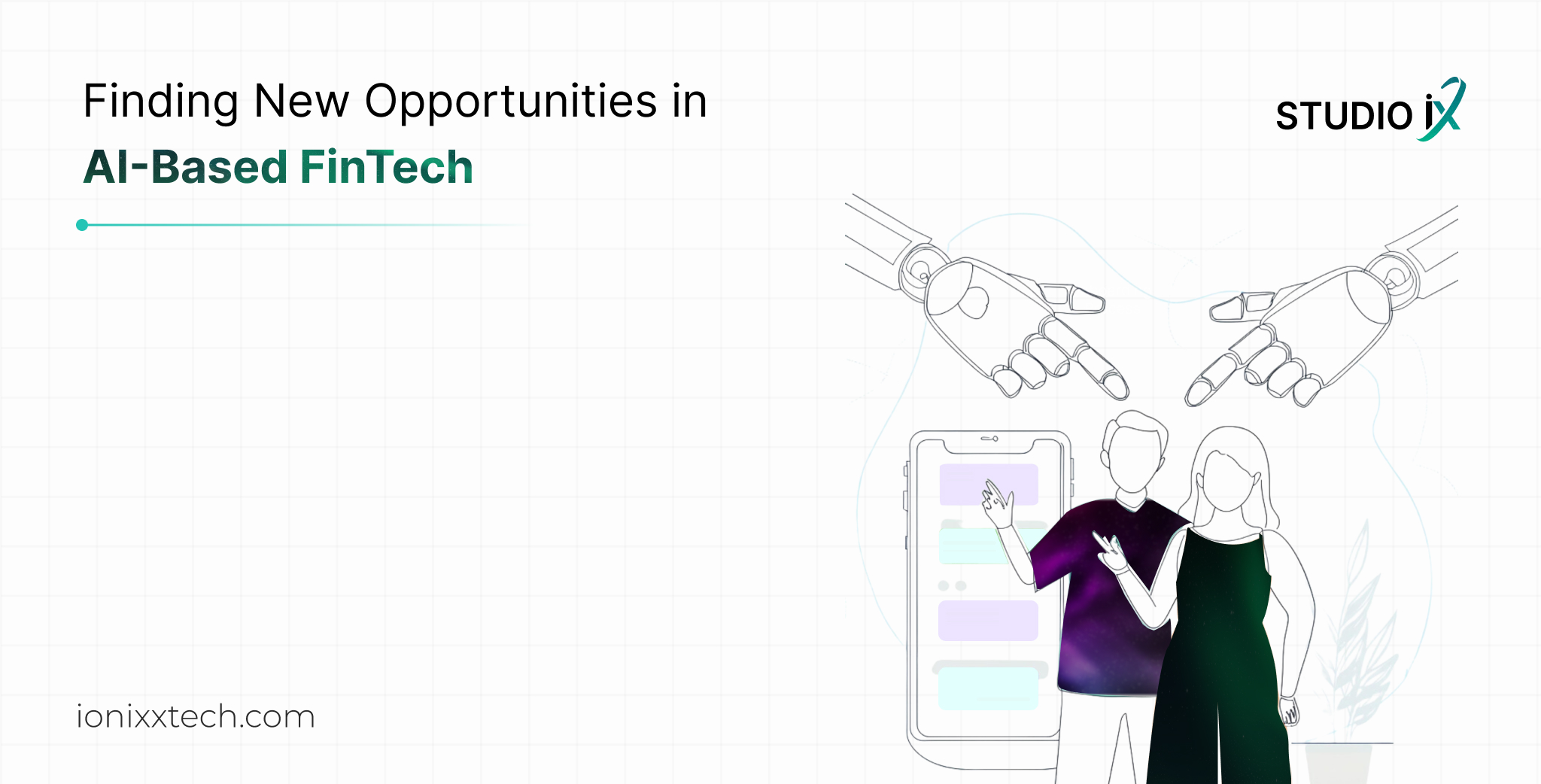With the financial landscape shifting from traditional models to a digitally-centric approach, AI technologies are central to achieving higher efficiency and driving innovative strategies. According to a recent report by McKinsey, AI applications in the FinTech sector could potentially deliver up to $1 trillion in annual value.
The idiom “a rising tide lifts all boats” perfectly encapsulates the scenario: AI, as the rising tide, has the potential to elevate the entire FinTech sector, providing vast opportunities for innovation.
In this blog, we explore a few critical areas where AI in FinTech can create lasting impact, translating into outcomes that drive business value.
1. Personalized Financial Advice
Many people want help managing their money. AI can give personalized advice based on someone’s spending, income, and financial goals. Existing services often provide general advice, but there is potential to create more tailored and accurate solutions. An AI platform that tracks spending, integrates with different financial accounts, and offers real-time advice on saving, investing, and budgeting could be very useful. This would help users manage their money better by offering advice that fits their specific needs. For instance, A fitting example would be a personalized budgeting tool that analyzes spending habits and suggests specific areas where users can cut costs. If the application detects high spending on dining out, it could recommend meal planning and cooking at home to save money.
2. Small Business Services
Small businesses need tools to handle loans, payments, and bookkeeping. Many current tools are either too complicated or too expensive for small business owners. AI can simplify these tasks by providing an easy-to-use platform for accounting, payment processing, and quick access to loans. A system that uses Machine Learning (ML) to evaluate creditworthiness and offer personalized financial products would be very helpful for small business owners.
Consider an automated invoice management system that tracks sent and received invoices, sends payment reminders to clients, and reconciles payments with the business’s accounting software. This feature helps small businesses maintain cash flow and reduces the time spent on manual invoicing.
3. Fraud Detection
As more people use online banking and digital payments, the risk of fraud increases. AI can help detect and prevent fraud by analyzing patterns and spotting unusual activities. Developing an AI system that predicts and stops fraudulent activities before they happen would be beneficial. This system could learn from regular transaction patterns to reduce false alarms and improve security.
A striking example is a real-time transaction monitoring that flags suspicious activities based on user behavior patterns. For example, if a user typically makes small purchases and suddenly a large international transaction occurs, the system could alert the user and temporarily freeze the account until the transaction is verified.
4. Financial Education
Many people lack the financial knowledge needed to manage their money well. AI can create interactive lessons and tips to help people learn about budgeting, saving, investing, and more. An AI-powered educational platform that adapts to the user’s knowledge level and learning pace could make learning about finance more engaging and effective. This could include quizzes, daily tips, and real-time feedback to help users improve their financial literacy.
For instance, imagine a personalized learning path that adapts to the user’s progress and interests. If a user shows interest in investing, the platform could offer more advanced modules on topics like stock market basics, portfolio diversification, and risk management.
5. Health and Wellness
Tools that help individuals manage their healthcare costs efficiently are a must in the current uncertain times we are in. Against this setting, AI can help by finding the best insurance plans and managing medical bills. An app that tracks medical expenses, suggests cost-effective health insurance plans, and provides tips on saving for medical emergencies would be very useful. Combining health data with financial management can help people make better decisions about their healthcare spending.
A good example would be a medical expense tracker that integrates with health insurance accounts to monitor out-of-pocket expenses and provide suggestions for cost-saving measures, such as switching to generic medications or using in-network healthcare providers.
6. Green Finance
There is growing interest in environmentally friendly investments. AI can assist by identifying and suggesting green investment opportunities, such as companies focusing on renewable energy or sustainable practices. An AI-driven platform that provides insights into the environmental impact of various investments and suggests eco-friendly options can attract environmentally conscious investors looking to make a positive impact.
An impact calculator that shows users the environmental benefits of their investments, is a suitable feature, if someone invests in a renewable energy company, the calculator could estimate the reduction in carbon emissions achieved through their investment.
Final Thoughts
The FinTech industry is full of opportunities for new businesses, especially those that use AI to improve their services. By focusing on areas like personalized financial advice, small business services, fraud detection, financial education, health and wellness, green finance, and customer support, new players can find their niche and succeed.
The key to success lies in delivering smarter, more intuitive solutions that address the evolving needs of today’s consumers. By focusing on user-friendly interfaces and leveraging AI to provide tailored experiences, new companies can make a significant impact. With a strategic approach and a commitment to innovation, these businesses have the potential to redefine the FinTech landscape and achieve substantial growth.



